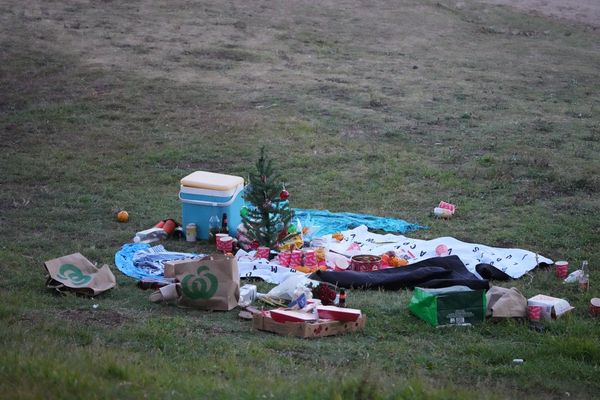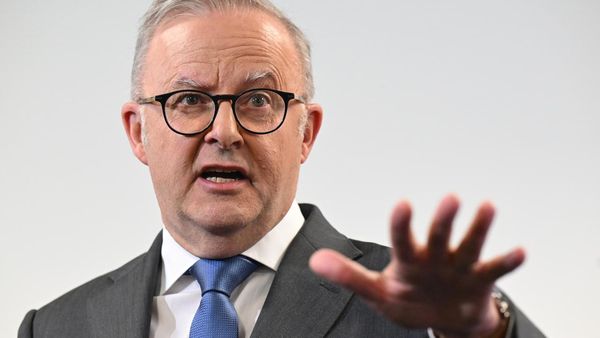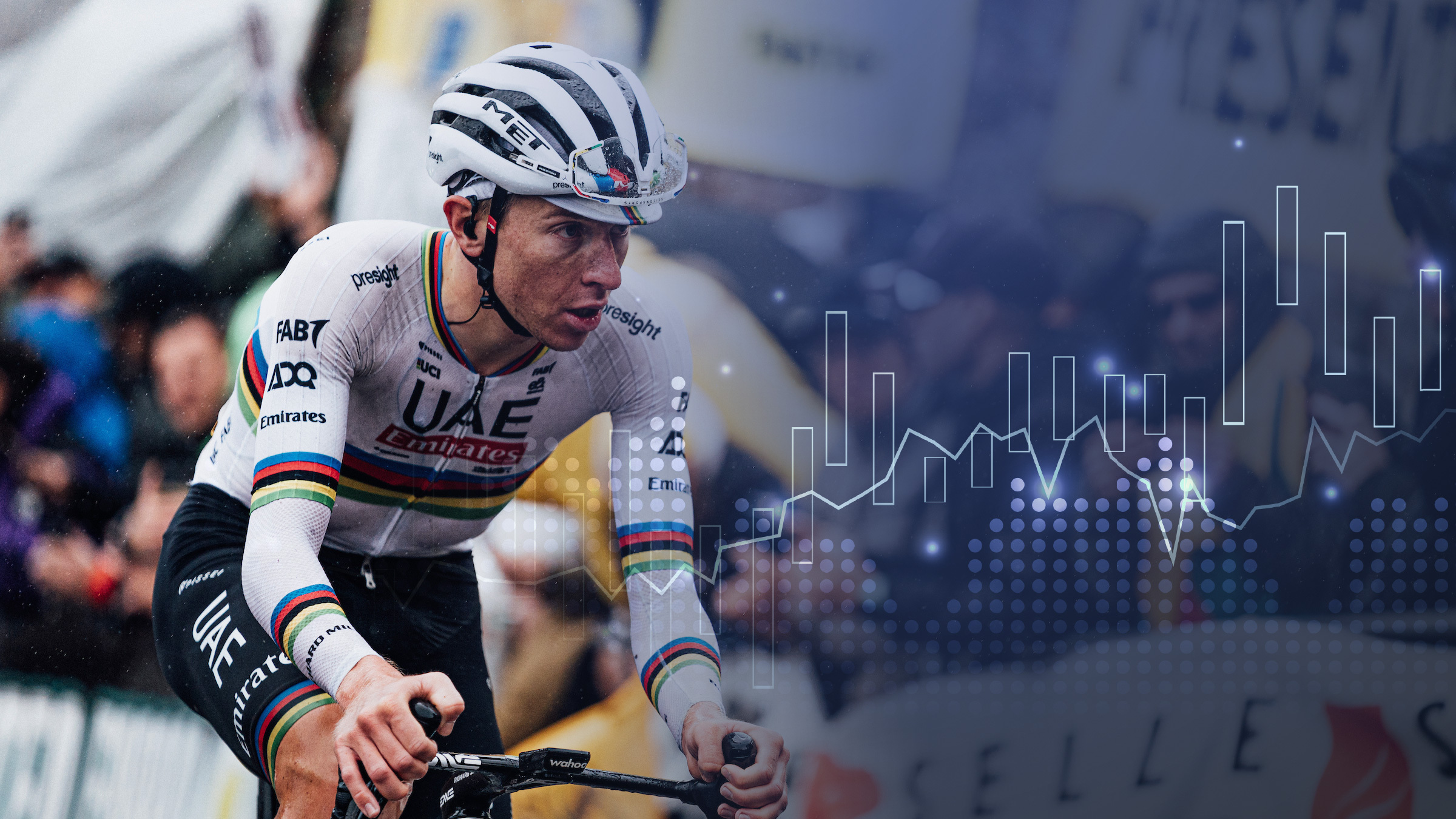
If you don’t know by now that Tadej Pogačar is the third male rider to do the Triple Crown of cycling by winning the Giro d’Italia, Tour de France and World Road Race in the same year, then where have you been? Pogačar has emulated the achievements of Eddy Merckx in 1974 and Stephen Roche in 1987.
By also adding two Monuments, Liege-Bastogne-Liege and the Tour of Lombardy, Pogačar has staked a reasonable claim for having just completed the greatest road racing season of all time. Every time he swung his leg over his bike he seemed to break several more records, doing things that we thought would never be doable in this era of cycling.
But this isn’t about Pog. In fact, it’s about precisely the opposite of Pog. Let’s set the Slovenian to one side and have a look at the stats and facts which coloured the cycling season and had nothing whatsoever to do with him.
Quick-Step’s worst-ever Spring Classics
Soudal Quick-Step used to be the team to beat in the Spring Classics. Not any more. If you take the six biggest cobbled races - Omloop Het Nieuwsblad, Gent-Wevelgem, E3 Saxo Classic, Dwars Door Vlaanderen, the Tour of Flanders and Paris-Roubaix - this year was the team’s worst year since their inception in 2003.
Their best result across all of these races was 8th at Gent Wevelgem achieved by Tim Merlier. Taking their best finishing position at each of these Classics, we get an average value of 23rd place.
In 10 of the 22 seasons for this team, this average best-placed finisher value has been better than 5. To illustrate how far they have fallen, their best year came in 2012 when they won five out of six of these races and finished second in the other, giving them an average best-placed finish of 1.17.
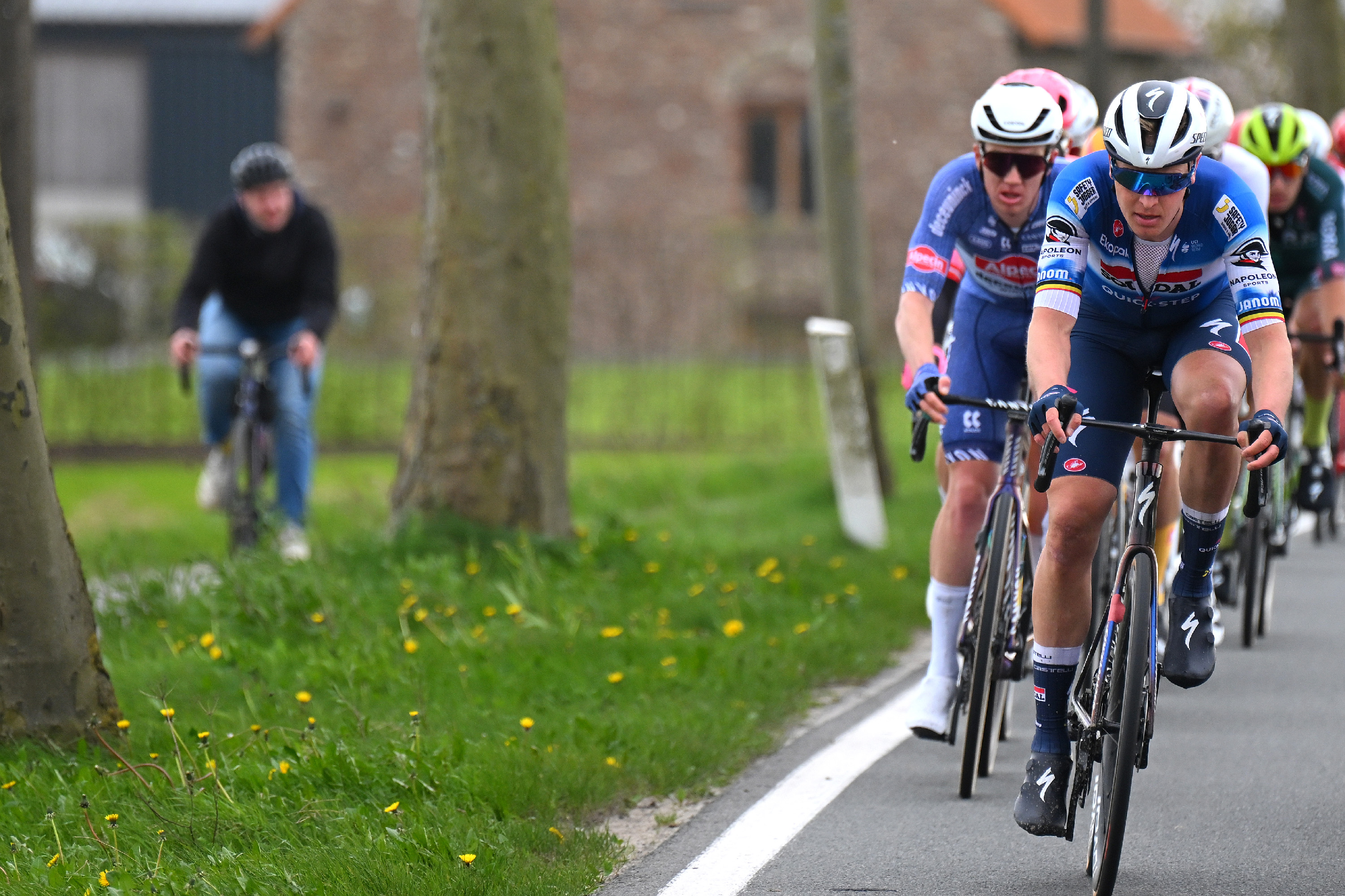
The really bad news for Quick-Step is that 2024 is not just an anomaly which can be explained by illness, injury or bad luck. Their cobbled Classics demise has been steadily occurring for several years.
They’ve had just one other year where they only managed a single top 10 in these races, and that was as recently as 2022. Prior to 2022, they had never completed these cobbled Classics without a podium finish in at least one. They are now podium-less for a third consecutive year.
The team have never gone more than two years without winning one of Gent-Wevelgem, Flanders or Roubaix, until now. With 2021 Tour of Flanders winner Kasper Asgreen moving on to EF Education-Easypost next season, for the first time ever the team don’t even have a rider who has won one of those three races. They’ve also never had fewer Monument winners on the team.
With 2019 Milan-San Remo winner Julian Alaphilippe also departing, there is now only one, Remco Evenepoel. Paradoxically, their one remaining Monument winner is likely the biggest reason for their cobbled Classics failure as they have been steadily crafting their entire squad around Evenepoel and his Grand Tour ambitions. Those ambitions give the team a bit of a silver lining on the Classics clouds of doom - Evenepoel is the first rider in the team’s history to finish on the podium of the Tour de France.
It's not all about Pogačar at UAE Team Emirates
Visma Lease-a-Bike’s surprising losing streak record
Plenty of the talk already this off-season is around how anyone is possibly going to beat Pogačar next year. We all have very short memories. Just six months ago, Pogačar hadn’t won a Grand Tour for nearly three years and Visma Lease-a-Bike were still the team who had most recently won all three Grand Tours. This time last year, we all wondered how anyone could stop the Visma winning machine.
The machine didn’t really stop in 2024, they still managed 32 wins, enough to be in fourth place on the team win rankings. But it did stutter. Of course, there were mitigating circumstances. They seemed cursed with bad luck throughout the season with particularly serious injuries to their two star riders Wout van Aert and Jonas Vingegaard.
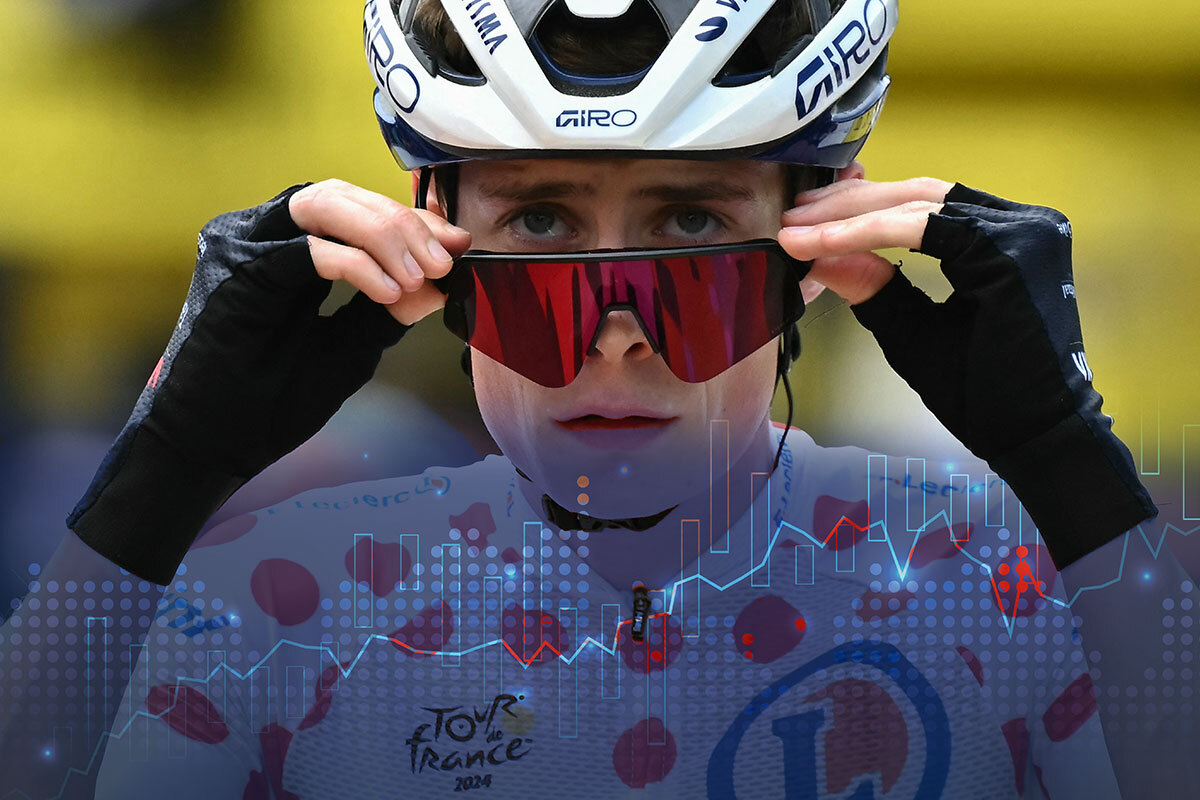
What this meant was no Grand Tour wins for the first time in six years and no Monument wins either. Perhaps the most astonishing thing is that it wasn’t just no Monument wins - they didn’t even manage a top 10 place across all five races. Their best result was 12th place at Liege-Bastogne-Liege through Tiesj Benoot.
This team have been in existence in various guises since 1984. Over the past 41 years, only once have they managed a worse set of results across the Monument classics, that was in 2017 when their best result was 22nd place at Milan-Sanremo.
And it is still rather inexplicably true that over the course of those 41 years, the team have still never won Paris-Roubaix. Their 40 participations at Paris-Roubaix during those years is the most amount of times throughout cycling history that the same team have ridden a single race and never won it.
Who's had the busiest season?
Niewiadoma’s five-year drought ends
One of the most talked about stats of the year was the winning margin of just four seconds by Kasia Niewiadoma over Demi Vollering at the Tour de France Femmes. This was the smallest winning margin in Tour de France history, cutting the record in half set by Greg LeMond over Laurent Fignon in 1989.
But this fact depends on how loose you’re willing to be with the definition of the ‘Tour de France’. There were several rather unofficial precursors to the present day Tour de France Femmes. One of which was the Tour de France Féminin created in 1984 which morphed into the Tour of the European Economic Community, organised by ASO. That race, 13 stages in 1991, was won by the Dutch rider Astrid Schop over her compatriot Leontien van Moorsel by just two seconds.
The Tour de France Femmes was Niewiadoma’s second win of the season. Her first was La Flèche Wallonne. And that win broke a run of almost five years without a win for the Polish rider. During that time, she had finished in the top 10 on 93 occasions, including 28 podium places. All but three of those second and third places were in WorldTour level races.
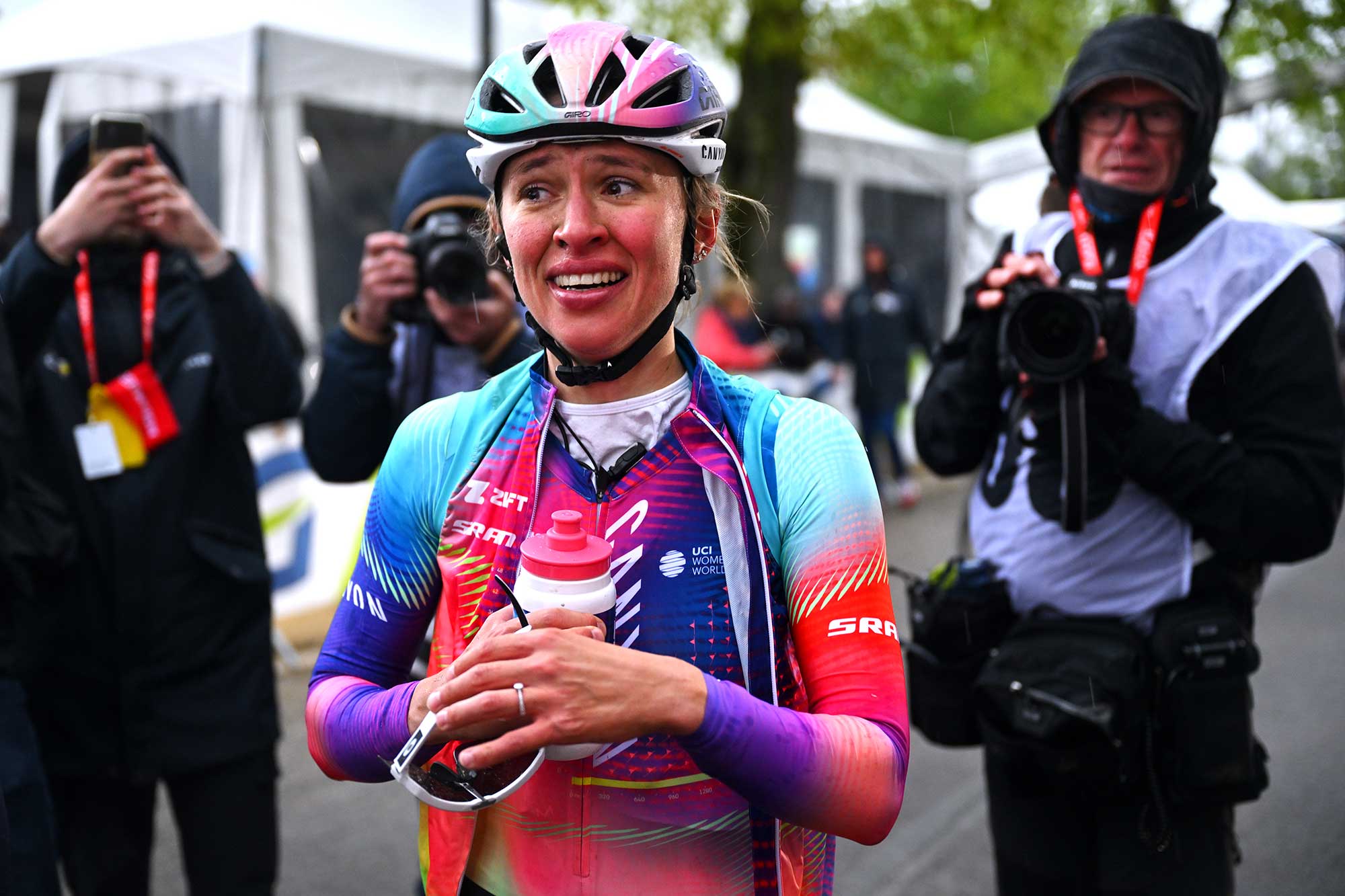
The faster-ever Monument
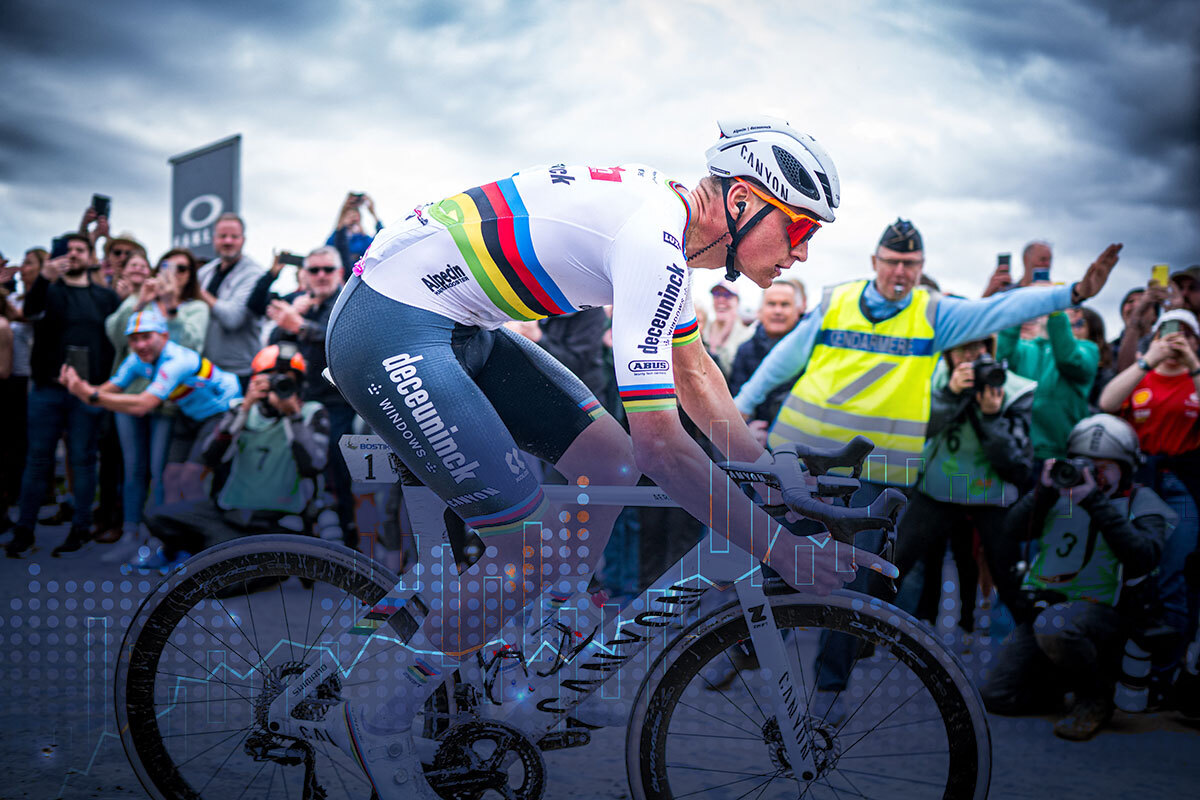
Mathieu van der Poel won Paris-Roubaix at an average speed of 47.8 kilometres per hour. Despite having to slow down for the ‘chicane’ just before the Arenberg forest, this set the record for the fastest-ever Monument Classic, beating the record of 46.8 kilometres per hour in the 2023 Paris-Roubaix, also won by Van der Poel.
Every rider in the 2024 edition down as far as Jonas Abrahamsen in 27th place broke that previous speed record. Yet Abrahamsen still finished more than six and a half minutes behind Van der Poel on the day.
One of cycling’s unofficial records is the Ruban Jaune which notionally belongs to the rider who has won the fastest ever race which was ridden over more than 200km. Van der Poel’s speed over the Roubaix cobbles was not enough to take this record which still belongs to Philippe Gilbert who won Stage 17 of the Vuelta with a howling tail wind helping him to the win at an average speed of 50.63 kilometres per hour.
Van der Poel ‘only’ won five races during his tenure as road race World Champion, so he wasn’t troubling the astonishing and unbreakable record (sorry Tadej) set by 1976 world champion Freddy Maertens when he won 44 races in the rainbow jersey.
Nevertheless, by winning the cobbled double of Flanders and Roubaix, Van der Poel still had one of the best stints ever in the jersey. Only Rik van Looy in 1962 had ever achieved this double while wearing the rainbow jersey.
Van der Poel also became the first rider since Eddy Merckx in 1973 to win multiple Monuments in consecutive seasons (Pogačar has also achieved this since). One of the most surprising and impressive results of the year was that Van der Poel snaffled a podium spot at Liege-Bastogne-Liege where he finished in third. In a neat, familial, trivial way, Van der Poel was the first rider to finish on the podiums of Flanders, Roubaix and Liege in the same year since… Van der Poel in 1986. Not Mathieu of course, it was his dad Adrie.
Sign up to the Musette - our subscriber-only newsletter
A rare Tour de France time trial win by the world champion
Also in the rainbow jersey for the past season, and still in the rainbow jersey now having retained his world title, was Remco Evenepoel as the time trial champion. Evenepoel got to wear his time trial rainbow jersey on seven occasions throughout the year, managing three victories - stages in the Volta ao Algarve, Criterium du Dauphiné and the Tour de France.
Seven races and three wins is just about par for a time trial World Champion. The averages that all World Champions have managed since this discipline was first awarded a rainbow jersey in 1994 has been 8.2 races and 2.6 wins.
The record for most wins by a men’s time trial World Champion during a single reign remains Tony Martin who won nine time trials after he was crowned World Champion in 2012. Martin of course was champion four times, which means he also holds the record for most wins in total. He managed 22 victories across his four years.
Evenepoel’s Tour de France time trial stage win in the rainbow bands is relatively rare. He’s just the fourth rider to achieve this after Fabian Cancellara, Tony Martin and Tom Dumoulin. Evenepoel also came within 16 seconds of beating Filippo Ganna to a time trial stage win at the Vuelta. The last rider to win a time trial stage of the Vuelta in the rainbow jersey remains Abraham Olano in 1998, a surprisingly long time ago. It also means that Dumoulin remains the only time trial World Champion to have won a stage in two different Grand Tours as he added a Giro stage win in 2018 to his Tour de France stage win.
Tadej Pogačar and his winning addiction
Vos reaches 250 road race wins
Arguably the greatest cyclist of all time, Marianne Vos reached the milestone of 250 wins on the road this year. She did this in March at Dwars Door Vlaanderen, a race she had, unusually, only ridden once before in 2023 when she finished third. Vos’s first of those 250 wins was way back in April 2006, just a few weeks after her now teammate Imogen Wolff was born.
What makes Vos so great though is her success across several disciplines and she expanded that even further this year by winning the Gravel World Championships. Adding to world titles in road racing, cyclo-cross and on the track, she has now been a world champion in four different disciplines of cycling - something that only Pauline Ferrand-Prevot has emulated.
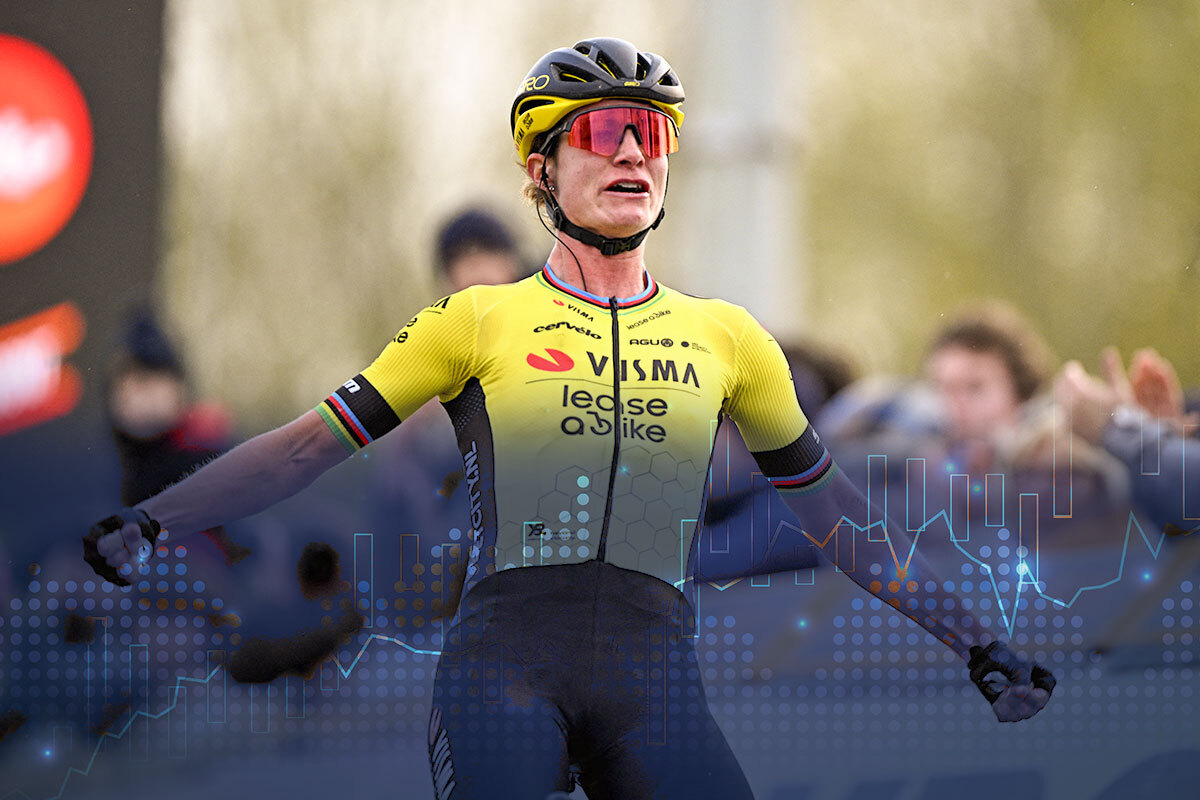
Men’s pro cycling is more stable than ever
When there are no road races to focus on over the winter, we often get discussion of how cycling needs to reform itself, that teams need more control and more money. Share the revenue and teams will become more stable, is what we’re told.
There was a time when teams were utterly transient. Literally here one year and gone the next in some cases. The top tier of the sport was in constant turmoil and all riders, no matter who they were or what they’d achieved, were in a never-ending scramble to get their next contract.
Not anymore.
The data would indicate that actually, the top tier of men’s professional cycling has never been more stable, ever, in the history of cycling. Trade teams were reintroduced to the Tour de France for good in 1969.
If you consider all of the Tour de France teams for each year since then and consider how long each team has been in existence, for the 2025 campaign (assuming the same teams that were present at this year’s Tour de France will also be at the next one) the average amount of years that the teams have existed is 22.
Movistar, Lotto-Dstny and Visma Lease-a-Bike have all been in existence for more than 40 years now. Even ‘newer’ teams like EF Education-EasyPost, Team dsm-firmenich PostNL, Red Bull Bora-Hansgrohe and Uno X have all existed for more than 15 years. The last team to ride the Tour de France that now no longer exists is Qhubeka-Nexthash, who featured in 2021.
Only one team at the 2025 Tour de France will have been in existence for less than 10 years. That is Bahrain Victorious who have been around for eight years. Compare this with the Tour de France of 2005, 20 years ago, and 12 teams hadn’t yet reached the age of 10.
Girmay and Evenepoel lead by example
The unsung heroes
The winners take home the bacon and the Credit Lyonnais lions, but it’s also worth celebrating the ‘nearly theres’ and the ‘almost made its’. The male riders who finished in the top 10 the most times but didn’t win a race in 2024 were Enric Mas (24), Mikel Landa (23) and Egan Bernal (23). A bit of a theme there with a trio of Grand Tour GC riders trying to rediscover some fading form.
A little bit closer to the wins, the male rider with the most podium places but no wins was Paul Penhoët of Groupama FDJ with eight. Still only 22, Penhoët might be one to watch next year.
On the women’s side, the rider with the most top 10s and no wins was Lidl-Trek’s Gaia Realini with 19, although she did pull on the leader’s jersey at the Vuelta as part of the winning team time trial effort on the opening stage. Is that a win? Statisticians say ‘no’.
And the riders with the most podium places with no wins were Realini again, she was tied on six along with Christina Schweinberger of Fenix-Deceuninck.
If you subscribe to Cyclingnews, you should sign up for our new subscriber-only newsletter. From exclusive interviews and tech galleries to race analysis and in-depth features, the Musette means you'll never miss out on member-exclusive content. Sign up now

